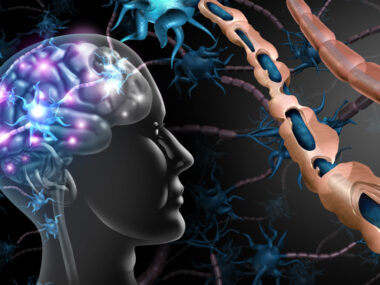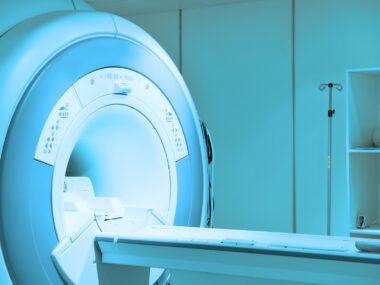
Newly diagnosed with multiple sclerosis: A guide
If you’ve recently been diagnosed with multiple sclerosis (MS), there’s much to learn. Take it step by step and give yourself time to adjust. Start by gathering info on managing your MS, including questions for your doctor, building a care team, and understanding your treatment options. Empower yourself and gain control of your journey.
Watch: Embarking on the MS journey
Read: Empowerment through knowledge

How much do you know about multiple sclerosis? Try this quick quiz to test your knowledge of MS types, causes, symptoms, and testing. Whether you're new to MS or brushing up, it's a great way to stay informed.

The exact causes of MS are unclear, but multiple interconnecting factors are known to play a role. Vitamin D deficiency is an important environmental factor thought to contribute to MS development and disease progression.

Although there is no evidence that any one dietary strategy is best for people with MS, it is recommended patients eat a varied and well-balanced diet that includes fruits, vegetables, and whole grains and excludes foods that are processed or high in refined sugars and fats.

Bladder and bowel issues are among the most difficult — and least discussed — symptoms of MS. These challenges often bring not just physical complications but also feelings of shame and isolation. Sharing stories and strategies reminds us that no one faces this part of MS alone.

Living with MS can make walking long distances difficult, which is why many people qualify for a disabled parking placard. With the right paperwork and your doctor’s support, applying for a placard can ease daily routines and support independence.

An early diagnosis of multiple sclerosis is important but can be challenging. Clinicians use a set of guidelines called the McDonald criteria that incorporate clinical and laboratory evaluations to make a definitive MS diagnosis.

Managing finances with MS means balancing treatment costs, insurance, and daily expenses. With the right resources and planning, you can protect your health and financial stability.

Talking to your kids about an MS diagnosis can feel overwhelming, but open, age-appropriate conversations help build trust and ease confusion. Creating space for questions and emotions lays the groundwork for ongoing support as your family adjusts.

Feeling fine with MS may mean your treatment is working. Stopping medication without your doctor’s approval can lead to relapses and new symptoms. Here’s why staying on treatment matters.

A multiple sclerosis diagnosis can affect your job, but understanding your rights and exploring accommodations can help you stay on track. With the right support, you can balance your career and health with confidence.

In MS, the immune system mistakenly launches a response that damages the central nervous system. This can give rise to abnormal physical sensations, known as dysesthesias, and also can cause spasticity, or muscle spasms.

Undergoing an MRI for multiple sclerosis involves understanding the procedure, knowing what to expect, preparing properly in advance, and using helpful relaxation techniques to stay calm during the scan.

How much do you know about multiple sclerosis? Try this quick quiz to test your knowledge of MS types, causes, symptoms, and testing. Whether you're new to MS or brushing up, it's a great way to stay informed.

For most women, MS is not associated with an increased risk of fertility issues or pregnancy complications, but there are some factors to keep in mind when planning or growing your family.
 Discussion
Discussion
Dear younger self, As I sit down to write this letter, I can’t help but tear up at the thought of you. First and foremost, you’re an amazing soul, full of life and with a bright future ahead of you. But you’ve just received life-changing news, and it feels…

Spasticity in MS is common and may cause anything from mild discomfort to significant pain and impairment in your daily life, making it difficult to walk or perform daily tasks.

Through MS support groups and other resources, people with multiple sclerosis can meet others who can support them, share their knowledge and resources, and give insight into what the future may look like.

A good first step after receiving an MS diagnosis is educating yourself about the disease and ways you can manage it, including learning about your healthcare team, treatment options, and available support and financial resources.

For people who have become caregivers to someone with MS, it can be difficult to know the best ways to support that person. Jenn Powell gives the patient perspective on caregiving, offering some advice and describing the ways her husband helps her on a day-to-day basis.

A comprehensive, coordinated multidisciplinary care approach can help those living with MS better manage it. MS management requires a diverse team of healthcare specialists, from occupational therapists to mental health providers, to treat both the body and mind.

For those who have been newly diagnosed with MS, there may be some comfort in hearing from others who have been where they are now. Our columnists share some of their experiences and personal diagnosis stories for those who may be looking for a little help or guidance.

For people recently diagnosed with multiple sclerosis (MS), understanding the many MS treatments available and the differences between them can be overwhelming. The more information you have, the better prepared you will be to discuss treatment options with your doctor.

Engaging in physical activity may improve the quality of life for people newly diagnosed with multiple sclerosis, a link that remained even after accounting for other factors such as fatigue and disability status, a study shows.

Asking your healthcare provider the right questions can be a good first step toward successfully navigating your new life with MS. While not exhaustive, this list can help you start the dialogue with your doctor and gain a fundamental understanding of your condition and how it will affect your life.

A columnist reflects on a common MS experience: raising concerns that feel dismissed during medical care. This piece looks at patient advocacy when changing doctors is not easy, and how you can work toward better communication and care.
Recommended Posts
- MS-related bladder issues are unpredictable and disruptive
- Dementia risk nearly fivefold higher for people with multiple sclerosis: Study
- Mouse study finds some brain regions recover better after myelin damage
- New MS initiative gives patients a stronger voice in research priorities
- New real-world study supports long-term Ocrevus use in relapsing MS





